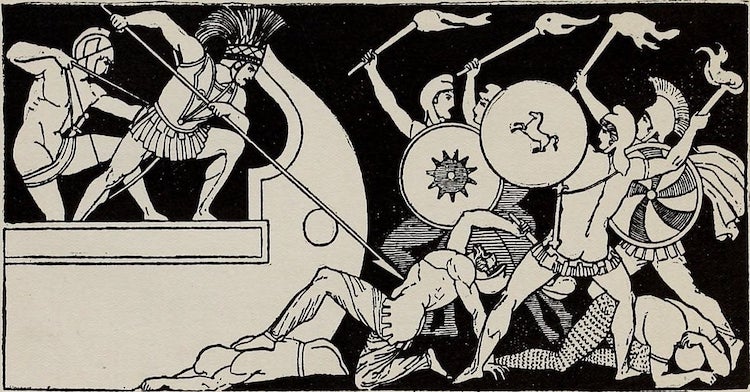1288

The Historia contains a class of additions that lead us to its most remarkable quality: Guido’s deep pessimism concerning man’s ability to shape or even comprehend his own destiny. In a series of emotional laments, told in a distinct, almost personal voice far different from the formal one used to narrate historical events, Guido looks back across the centuries and laments over the trivial faults and mistakes that bring about the ruin of Troy. Guido never offers the assurance that God is behind the events at Troy. The Historia does not show us the just punishment of sin, only the futility of human plans and effort. The villain of the Trojan War is simply the ignorance and weakness of the human condition. No man is responsible nor a country and thus all men are fallible, carrying old injuries and unable to predict the consequences of their actions. Guido does not avoid the pain of his history by turning it into allegory; he chronicles the suffering brought on by real events. His Historia does not recognize any order or purpose in the world — no deities or even historical forces — only the bleak certainty that things will always get worse. His concern is only with this world and its inhabitants, and what he reveals is a self-perpetuating cycle of mistake, revenge and destruction that is beyond man’s control. The history of Troy does not celebrate glory or heroism, but records with horror the destruction and futility of war. Thus, the Historia is not a legend or romance, it is an unrecognized variety of medieval history, but Guido’s dedication to eye-witness historical fact is practiced at the expense of other, deeper kinds of truth. Three different middle-English authors attempt to bring the raw material of the Historia to poetic life. In doing so, they ignore Guido’s only serious interpretation of his material: the deep pessimism that runs through his story, which increases as the war unfolds. However, this despair is not completely without effect. It becomes an important element in the two best poems about Troy in Middle English, poems that otherwise use the medieval history of Troy very selectively — Chaucer’s Troilus and Criseyde and Henryson’s Testament of Cresseid.
| Last modified: | 14 July 2024 8.41 p.m. |

